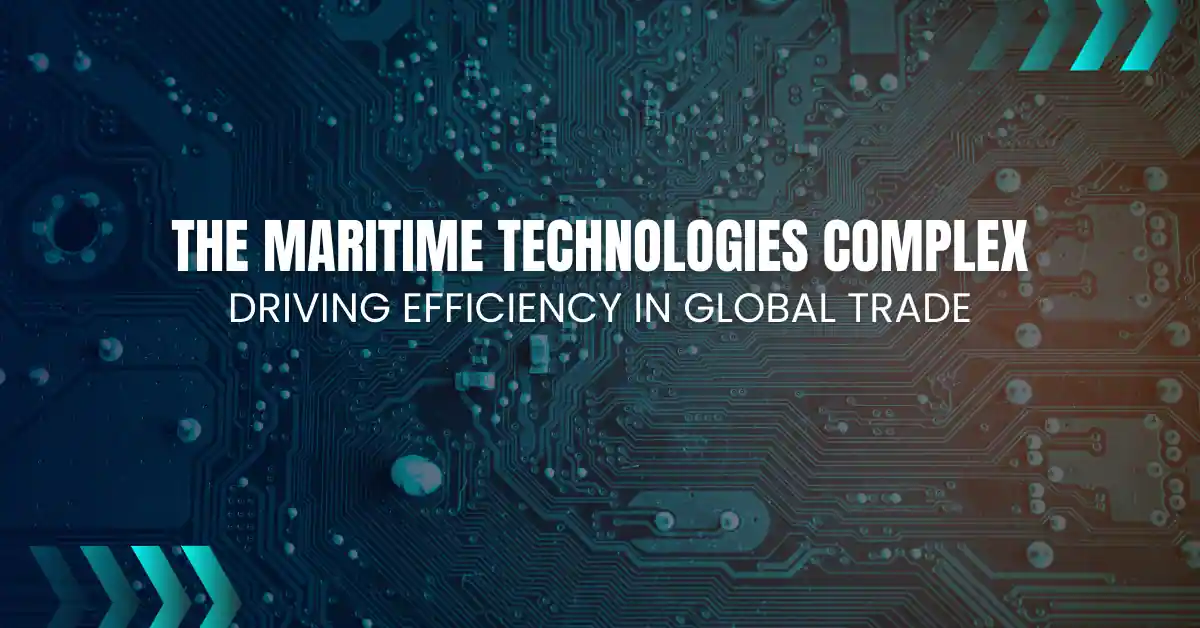The maritime industry is a critical component of global trade, serving as the backbone for the transportation of goods across the world’s oceans. With the increasing demand for efficiency, safety, and sustainability, the sector has witnessed a rapid evolution of maritime technologies. This article delves into the maritime technologies complex, exploring the various innovations that shape this dynamic field and their implications for the future.
Table of Contents
ToggleThe Importance of Maritime Technologies
Maritime technologies complex play a vital role in ensuring the smooth operation of shipping and logistics. These technologies enhance safety, improve efficiency, and minimize environmental impacts, making them essential for sustainable global trade.
Enhancing Safety and Security
Safety is paramount in the maritime industry. Innovations such as advanced navigation systems and real-time tracking technologies have significantly reduced accidents at sea. Moreover, security technologies, including surveillance and monitoring systems, help safeguard vessels against piracy and other threats.
Environmental Sustainability
With growing concerns about climate change, maritime technologies have made strides in promoting eco-friendly practices. Innovations such as cleaner fuels, energy-efficient ships, and waste management systems contribute to reducing the industry’s carbon footprint.
Types of Maritime Technologies
The maritime sector encompasses a wide range of technologies that facilitate operations, improve safety, and enhance communication.
Navigation Systems
Navigation has come a long way from traditional maps to sophisticated Global Positioning System (GPS) technology. Modern vessels are equipped with advanced navigation systems that integrate GPS, radar, and electronic charts to ensure precise routing and safety.
Communication Technologies
Effective communication is essential for successful maritime operations. Technologies such as satellite communications and digital messaging systems enable seamless communication between vessels, ports, and operational centers, enhancing coordination and response times.
Shipbuilding Innovations
The shipbuilding industry has embraced new technologies to improve the design and construction of vessels. Techniques such as 3D modeling, simulation, and advanced materials have led to the development of safer, more efficient ships.
Autonomous Vessels
The emergence of autonomous vessels marks a significant turning point in maritime technologies. These unmanned ships promise to revolutionize the industry by reducing human error and operational costs while enhancing efficiency.
Key Players in the Maritime Technology Sector
Several key players contribute to the advancements in maritime technologies. Major shipping companies, technology providers, and research institutions collaborate to drive innovation in this field.
Research Institutions
Research institutions play a critical role in advancing maritime technology. They conduct studies, develop prototypes, and collaborate with industry stakeholders to foster innovation and address emerging challenges.
Challenges Facing the Industry
While the maritime industry is advancing rapidly, it faces several challenges that hinder the adoption of new technologies.
Regulatory Issues
Regulations can significantly impact the development and implementation of maritime technologies. Compliance with safety and environmental regulations often requires substantial investment, which can slow down innovation.
Cybersecurity Threats
As maritime operations become increasingly digital, the risk of cybersecurity threats grows. Protecting sensitive data and ensuring the security of operational technologies is crucial for the industry’s future.
Future Trends in Maritime Technologies
The future of maritime technologies is promising, with several trends poised to reshape the industry.
Integration of AI and Big Data
Artificial intelligence (AI) and big data analytics are set to transform maritime operations. These technologies can optimize routing, predict maintenance needs, and enhance decision-making processes.
The Role of Blockchain
Blockchain technology has the potential to revolutionize supply chain transparency in the maritime industry. By providing a secure and immutable ledger, blockchain can improve traceability and accountability across the supply chain.
Conclusion
The maritime technologies complex is a dynamic and evolving field that plays a crucial role in shaping the future of global trade. As the industry embraces innovation, it is vital to address challenges and leverage emerging technologies to enhance safety, efficiency, and sustainability.
FAQs
- What are maritime technologies? Maritime technologies refer to the innovations and tools used in the shipping and logistics industry to enhance safety, efficiency, and sustainability.
- How do autonomous vessels work? Autonomous vessels use advanced sensors, GPS, and artificial intelligence to navigate and operate without human intervention.
- What role does blockchain play in maritime logistics? Blockchain provides a secure and transparent way to track goods and transactions in the maritime supply chain, enhancing accountability.
- Why is cybersecurity important in maritime technologies? As the maritime industry becomes more digital, protecting against cyber threats is crucial to safeguard operations and sensitive data.
- What are the future trends in maritime technologies? Key trends include the integration of AI and big data, advancements in shipbuilding, and the rise of autonomous vessels.





